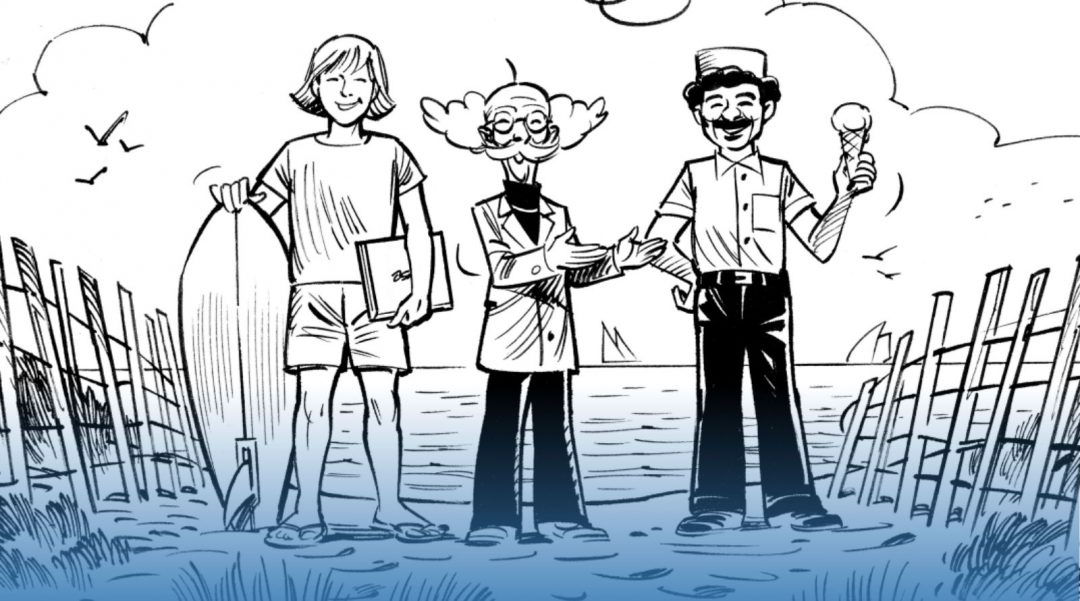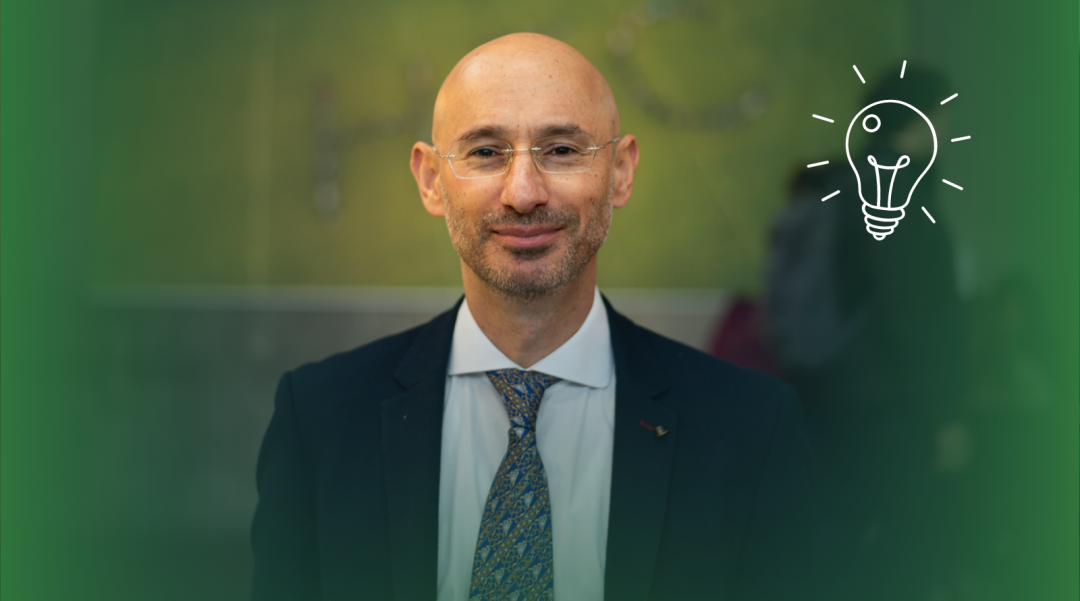“HEC Onboarding Days” to integrate students into their new environment, familiarize them with HEC values and make them aware of the major challenges of our century; a bilingual French-English Bachelor’s degree. These are just some of the initiatives that characterize the innovative and pioneering spirit of our HEC Lausanne Faculty (UNIL). Today, we invite you to discover these innovations with our pedagogical engineer, Emmanuel Fernandes.
Emmanuel is in the starting blocks for the start of this 2023/2024 academic year. There’s a certain frenzy around the realization of the various projects put in place over the last few months with the Dean’s Office.
Emmanuel, can you tell us what pedagogical innovation consists of at HEC Lausanne?
At HEC Lausanne, we place the students at the heart of the teaching process, making them actors in their own activities, and moving away from the ex-cathedra approach. From this participative vision of teaching emerge a host of ideas from our teachers aimed at improving the student learning experience.
To implement these ideas, we tend to think immediately, if not exclusively, of new technologies. However, the innovation process is not limited to pure digitalization. It can take many forms, such as combining or adapting existing tools. And it is the very fact of having thought of combining or using these tools differently that is innovative.
At HEC Lausanne, for example, Twitter (now X) has been used for several years in auditoriums, not as a social network, but as a tool for polling students to assess their level of understanding of the course.
Another more recent example is the introduction of video in large classes (between 200 and 400 students). Students are each asked to produce a video presentation of their project (<2min.), which is then evaluated by their peers and groups. The teacher intervenes only at the very end of the process. The innovation here is that 1) the students are given the role of evaluator, so that they can familiarize themselves with the feedback process and evaluation criteria, and 2) the video is used to provide almost individual guidance, which would not be possible in an auditorium with over 200 people.
This is the first time that HEC Lausanne welcomes its students with the Onboarding Days concept. What does it consist of ?
When 1st year Bachelor students start their studies, they don’t necessarily know each other. As we cultivate a collaborative spirit at HEC Lausanne, whether through our values, our modes of conduct or in practice (e.g. group work), it’s important that newcomers can integrate quickly.
Organized over a two-day period in the form of workshops, the HEC On-Boarding Days are an original way of introducing them to university life, giving them an overview of the courses and preparing them to work in groups. It’s also an opportunity to introduce them to the values of HEC Lausanne, with each workshop focusing on one of our four core values: R for Rigor, I for Integrity, C for Collaboration and E for Entrepreneurship. (Find out more about the workshops and the HEC Onboarding Days).
This idea came from the Dean’s Office, which, aware of the challenges facing our students, is very committed to teaching and preparing them for the professional world. As a result, this year our teaching department has also launched a bilingual French-English Bachelor’s program. By reinforcing their English skills, our students leave with a real advantage on the job market, but also in the Master’s program, where courses are taught mainly in English.
Which other projects are you working on?
To ensure that our students benefit from the fruits of innovation at HEC Lausanne, our lecturers need to be able to regularly acquire new knowledge through a context and tools that facilitate this spirit of innovation. To this end, the faculty has set up a platform to provide teachers with new pedagogical and technological resources. This involves the organization of hands-on workshops, the presentation of new teaching practices, the provision of a “sandbox” type space for testing new methods or ideas, etc.
What was the impulse behind HEC’s decision to move up a gear?
As part of our 3D strategy (Digitalization, Diversity, Sustainability), which we will be pursuing from 2021 onwards, we have decided to take our vision of education a step further. Our aim is to train leaders who will be the actors of change.
That’s innovation at HEC Lausanne!
With Emmanuel Fernandes’s arrival in 2004, the University of Lausanne was one of the first in Switzerland to introduce the notion of “educational engineer”. At the time, this initiative was part of the federal government’s “Swiss virtual campus” program. Its aim was to create an interface between teachers, IT specialists and education science professionals when introducing new technologies to support and develop teaching. Today, all UNIL faculties have their own engineer.




